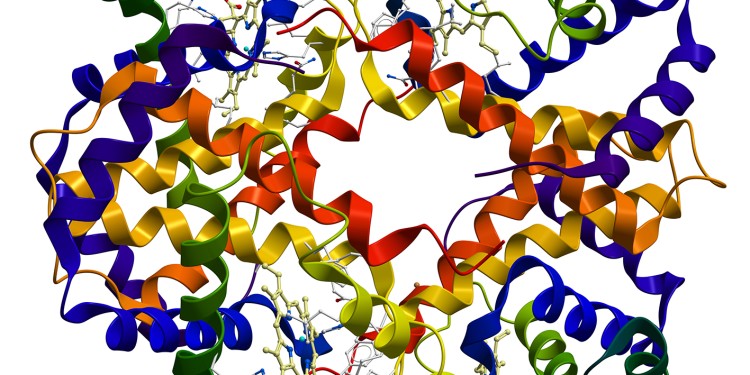
Focusing on new arrivals
Proteins are not only the body’s building blocks – they also have countless tasks to fulfil. For example, they transport nutrients, make chemical reactions possible and transmit signals. On average, a protein is 350 amino acids in length, and every protein in this chain is composed and folded in a characteristic way, forming the structure which equips the protein with its function. Duplications of the underlying DNA, and subsequent small changes in the amino acid chain as a result of mutations in one or both of the copies, can produce proteins with new properties which can be passed on to future generations.
Nowadays, however, researchers such as Prof. Erich Bornberg-Bauer from the Institute of Evolution and Biodiversity at the University of Münster proceed from the assumption that some proteins have no ancestors. For about ten years now, teams of researchers worldwide have been investigating a phenomenon which they call “de novo proteins”. The point here is that the blueprint for the new proteins originates in segments of the genetic material in the non-coding DNA – in other words, in areas in which there aren’t actually any protein blueprints. “These proteins are formed anew, in other words ‘de novo’,” as Erich Bornberg-Bauer explains, “without there being any immediate precursor protein which has gone through a selection process.” Bioinformatics specialist Bornberg-Bauer is one of the leading researchers in this field, and one of the things he is involved in is a project being funded by the Human Frontier Science Program. In this project, researchers are studying how the established proteins and the “new arrivals” interact in cells.
Some de novo proteins have beneficial functions and become an integral component of the cells in the course of the evolutionary process. The necessary requirement for a new protein to evolve from a non-coding segment of DNA is that the DNA can be transcribed and “translated” into amino acids. For example, a start and stop signal can be inserted into the DNA as a result of random mutations – a so-called reading frame which enables DNA to be transcribed and translated. “How often do de novo proteins arise? How and when do they insert themselves into the established molecular processes in the cells? What functions do they have? And how often do they disappear again? These are the questions we’re looking for answers to,” says Dr. Bharat Ravi Iyengar, a post-doc working with Erich Bornberg-Bauer. For this purpose, the team uses a combination of mathematical modelling, genome sequencing data analysis, micro-organism evolution in the laboratory, and biochemical tests.
In its search for candidates for de novo proteins, the Münster team is trying to find DNA transcripts whose sequences also occur in other types but are not transcribed there. Not an easy task, as “unused” DNA segments can change significantly during the evolutionary process, and it might no longer be possible to identify the corresponding sequences. Two examples of de novo proteins are the yeast protein Bsc4, which is necessary for repairing DNA damage, and a glycol-protein in cod which protects against frost.
Author: Christina Hoppenbrock
Conference:
Erich Bornberg-Bauer and his team will be welcoming researchers working in the field of protein evolution to the international “Protein Evolution Meeting in Münster”, to be held in the Schloss from 3 to 5 July. The participants will be discussing de novo proteins, as well as initiating new collaborations. Other issues the researchers will be discussing are, for example, protein structure and the interaction between proteins. The conference, which will be held in closed session, is receiving financial support from the German Research Foundation (DFG) and the University of Münster’s “Topical Programs”.
